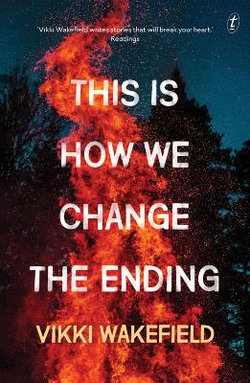**Winner of the 2020 CBCA Awards Book of the Year for Older Readers**
I have questions I’ve never asked. Worries I’ve never shared.
Thoughts that circle and collide and die screaming because they never make it outside my head. Stuff like that, if you let it go—it’s a survival risk.
Sixteen-year-old Nate McKee is doing his best to be invisible. He’s worried about a lot of things—how his dad treats Nance and his twin half-brothers; the hydro crop in his bedroom; his reckless friend, Merrick.
Nate hangs out at the local youth centre and fills his notebooks with things he can’t say. But when some of his pages are stolen, and his words are graffitied at the centre, Nate realises he has allies. He might be able to make a difference, change his life, and claim his future. Or can he?
This is How We Change the Ending is raw and real, funny and heartbreaking—a story about what it takes to fight back when you’re not a hero.
This item is In Stock in our Sydney warehouse and should be sent from our warehouse within 1-2 working days.
Once sent we will send you a Shipping Notification which includes online tracking.
Please check the estimated delivery times below for your region, for after your order is despatched from our warehouse:
ACT Metro 2 working days
NSW Metro 2 working days
NSW Rural 2 - 3 working days
NSW Remote 2 - 5 working days
NT Metro 3 - 6 working days
NT Remote 4 - 10 working days
QLD Metro 2 - 4 working days
QLD Rural 2 - 5 working days
QLD Remote 2 - 7 working days
SA Metro 2 - 5 working days
SA Rural 3 - 6 working days
SA Remote 3 - 7 working days
TAS Metro 3 - 6 working days
TAS Rural 3 - 6 working days
VIC Metro 2 - 3 working days
VIC Rural 2 - 4 working days
VIC Remote 2 - 5 working days
WA Metro 3 - 6 working days
WA Rural 4 - 8 working days
WA Remote 4 - 12 working days
Express Post is available if ALL items in your Shopping Cart are listed as 'In Stock'.



Share This Book: